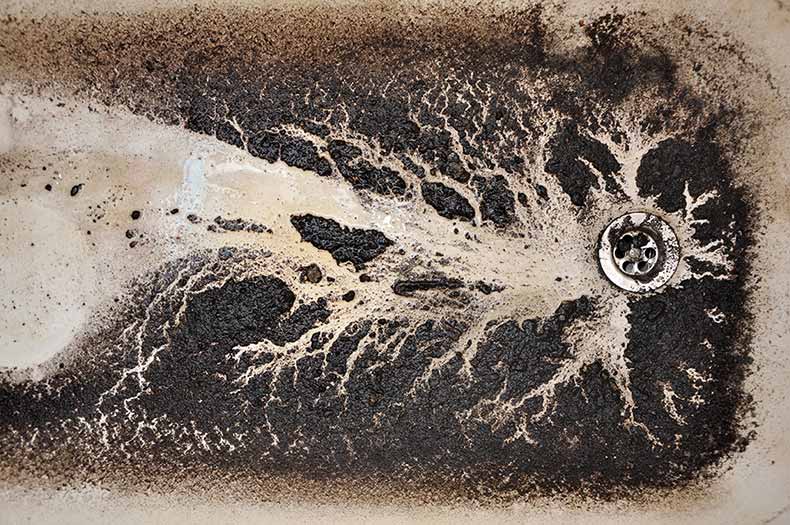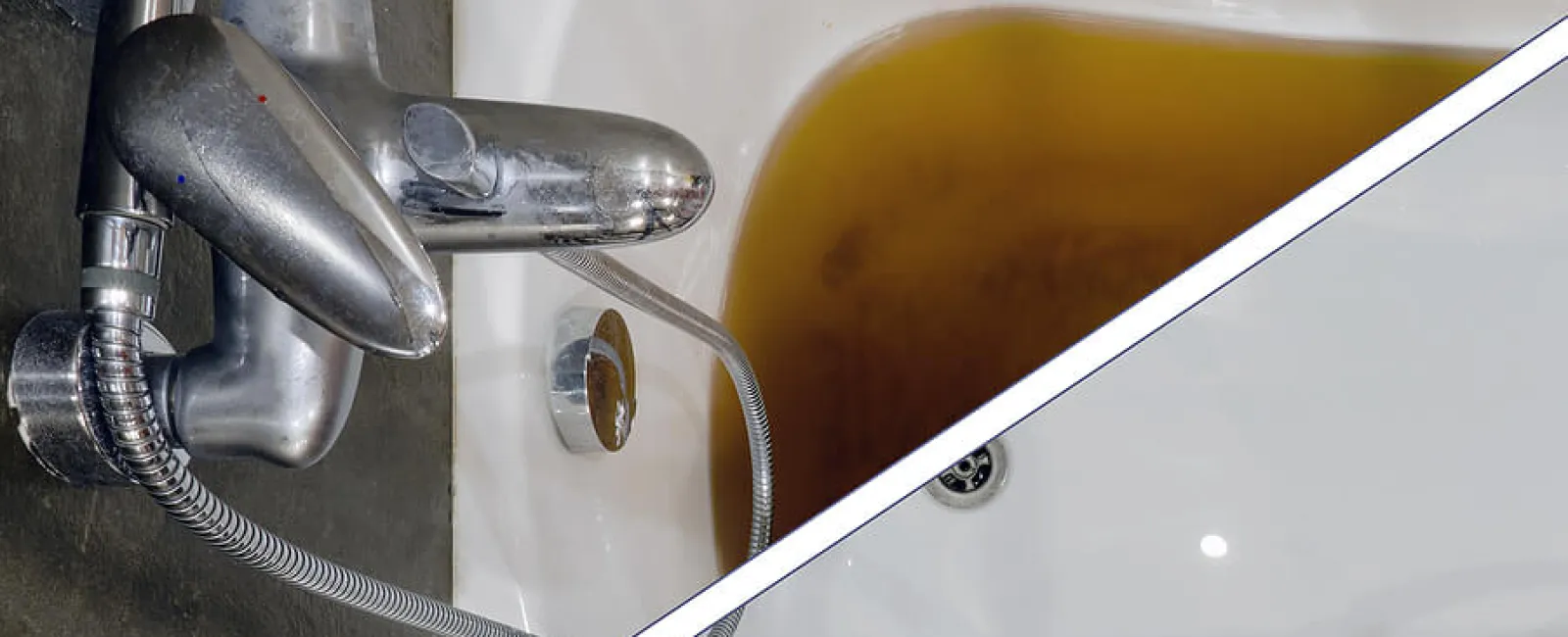Essential Factors Behind Sewage in the Bathtub
Essential Factors Behind Sewage in the Bathtub
Blog Article
What're your thoughts about What to Do if Sewage Starts Coming Up Through Your Bathtub?

Sewage back-up in the tub can be a stressful and unsanitary problem for any type of homeowner. Not only is it inconvenient, yet it likewise presents serious health risks and suggests underlying problems with the plumbing system. Recognizing why sewer is turning up through the bath tub is critical for taking ideal activity to resolve the issue properly.
Intro to the Issue
Usual Factors for Sewer Backup
Blockages in the Sewage System Line
Among the most common root causes of sewage backup is a blockage in the sewage system line. This can take place because of the build-up of debris, oil, or foreign items in the pipelines, protecting against correct flow and causing sewage to back up into your bath tub.
Tree Origin Intrusion
Tree origins seeking moisture and nutrients can penetrate sewage system lines with little cracks or joints. Gradually, these roots can grow and increase, triggering considerable damages to the pipelines and leading to sewage back-up problems.
Recognizing the Trouble
When sewage draws back up right into the bathtub, it's a clear sign of an issue with the drain system. The wastewater that should be moving away from your home is instead locating its back into your home, which can result in substantial damages and carcinogen.
Potential Causes
Several variables can add to sewage backup in the bath tub. From obstructions in the sewage system line to problems with the plumbing facilities, recognizing the origin is necessary for locating a remedy.
Aging Framework
Older homes may have outdated plumbing systems that are a lot more vulnerable to corrosion, splits, and deterioration. As pipes age, they come to be much more prone to leakages and clogs, enhancing the chance of sewer backup incidents.
Heavy Rainfall or Flooding
During durations of heavy rainfall or flooding, the drain system may become overloaded with excess water, triggering back-ups and overflows. This can cause sewer supporting into bath tubs and various other components inside the home.
Signs of Sewer Back-up
Foul Odors
Undesirable smells originating from drains or components, particularly in the washroom, might suggest sewage back-up problems. These smells are frequently solid and relentless, signaling a problem that calls for immediate focus.
Slow Draining Fixtures
Bathtubs, sinks, and commodes that drain pipes slowly or not whatsoever could be experiencing sewage backup. If multiple components are influenced simultaneously, it's most likely that the concern stems from a common factor, such as the main drain line.
Gurgling Noises
Weird gurgling or bubbling noises coming from drains pipes when water is running somewhere else in the house are a measure of air caught in the plumbing system. This air build-up can result from sewer back-up and need to be examined without delay.
Health And Wellness Dangers Associated with Sewer Backup
Contamination of Water System
Sewage back-up can contaminate the water system in your house, posturing a severe health and wellness danger to you and your family. Direct exposure to polluted water can cause gastrointestinal problems, skin infections, and other diseases.
Mold Growth
Wetness from sewer back-up can develop perfect problems for mold and mildew growth in your home. Mold and mildew spores can intensify respiratory system troubles and trigger allergies in delicate people, making punctual clean-up essential.
Spread of Illness
Sewage has damaging microorganisms, viruses, and bloodsuckers that can trigger a range of diseases, consisting of hepatitis, cholera, and gastroenteritis. Entering contact with sewer or polluted surface areas puts you in jeopardy of infection.
Tidying up After Sewer Backup
Disinfection Procedures
Completely disinfect and sanitize affected areas after sewer back-up to get rid of hazardous bacteria and avoid mold growth. Use appropriate cleansing products and protective equipment to ensure risk-free and effective clean-up.
Remediation of Affected Areas
Fix any kind of damages to floor covering, walls, or components triggered by sewer backup. Depending upon the extent of the damages, you may need to change carpets, drywall, or other products to recover your home to its pre-loss condition.
Immediate Actions to Take
Shutting Off Water System
In case of sewage back-up, it's important to switch off the water to prevent further contamination and damage. Situate the major water shutoff valve in your home and closed it off up until the problem can be dealt with.
Speaking To a Specialist Plumber
Dealing with sewer backup is not a do it yourself task. Get in touch with a licensed plumber with experience in handling sewage-related issues to evaluate the scenario and perform essential fixings or cleanups.
Preventing Contact with Polluted Water
Up until the sewer back-up is dealt with, avoid contact with contaminated water to prevent the spread of germs and microorganisms. Use protective equipment if you have to be in the affected area and wash your hands thoroughly afterward.
Safety nets
Routine Upkeep of Sewer Lines
Arrange routine inspections and maintenance of your drain lines to determine and attend to potential concerns before they intensify right into significant problems. This can include cleaning particles, checking for tree root intrusion, and fixing any type of damaged pipelines.
Mounting Backwater Shutoffs
Consider setting up bayou shutoffs in your plumbing system to prevent sewer from receding right into your home during durations of heavy rainfall or flooding. These shutoffs immediately close when water starts backing up, safeguarding your property from contamination.
Appropriate Disposal of Household Waste
Prevent purging anything other than toilet paper and human waste down the bathroom to stop blockages and obstructions in the drain line. Dispose of oil, oil, and various other house chemicals correctly to lessen the risk of plumbing problems.
Why Is Water Backing Up in My Bathtub When I Flush My Toilet?
What to do about a sewer line clog
First, don’t bother with plunging. No amount of plunging will dislodge the clog in a sewer line. The clog is too far away. Plungers are for clogs in the toilet itself, not the sewer line. Plus, the most likely causes of a sewer clog are:
Tree roots Flushed toys or feminine products Grease buildup Those items don’t move easily. And in the case of tree roots, the roots need to be cut out of the pipe and the pipe will need to be repaired.
You’ll need a closet auger. A closet auger is a type of plumber’s snake with a protective cover to keep from scratching the delicate porcelain toilet. If the clog is further down, you may need to remove the toilet or use one of your cleanouts to get to the clog.
We also recommend doing a video inspection of the drain to ensure that the cause of the clog has been completely removed. Otherwise, you could have the same problem again in a few days or weeks.
https://mspplumbingheatingair.com/blog/why-is-water-backing-up-in-my-bathtub-when-i-flush-my-toilet

I recently found that review about Water Coming up Bathtub Drain while looking around the web. Please take the time to promote this write-up if you enjoyed it. I recognize the value of reading our article about Water Coming up Bathtub Drain.
Call Today
Report this page